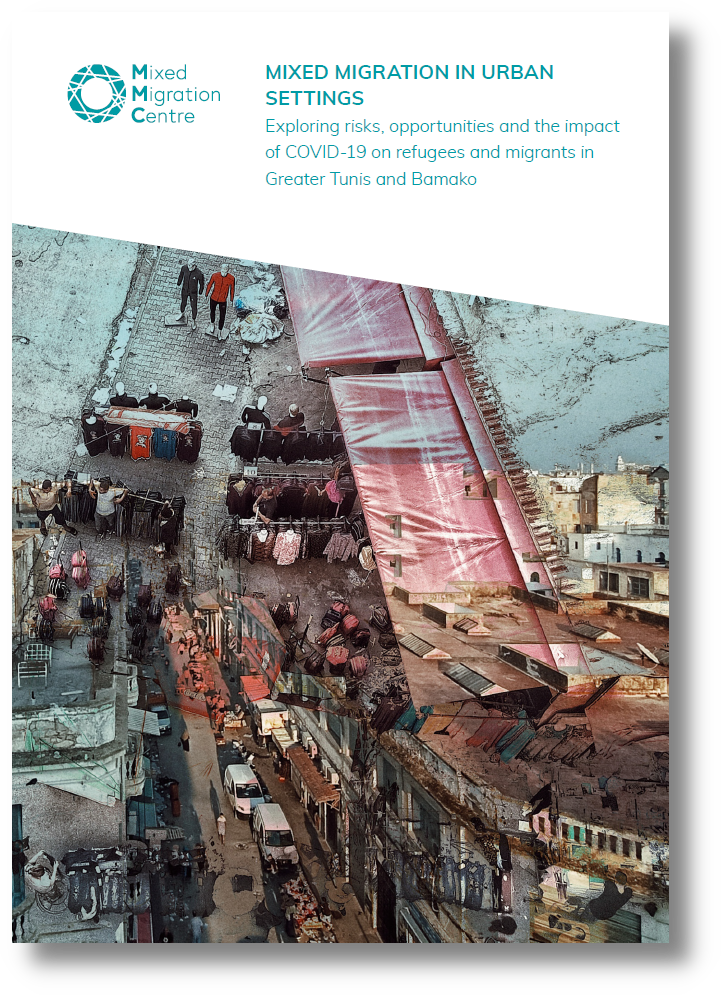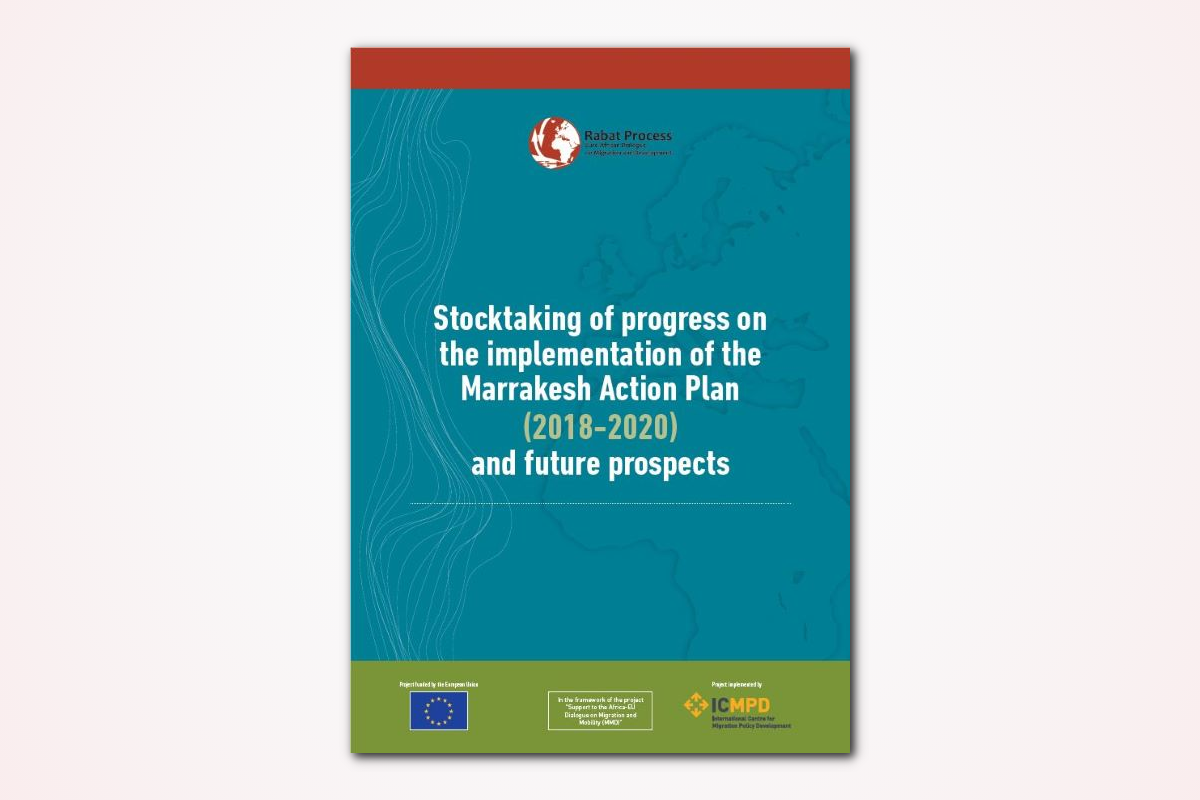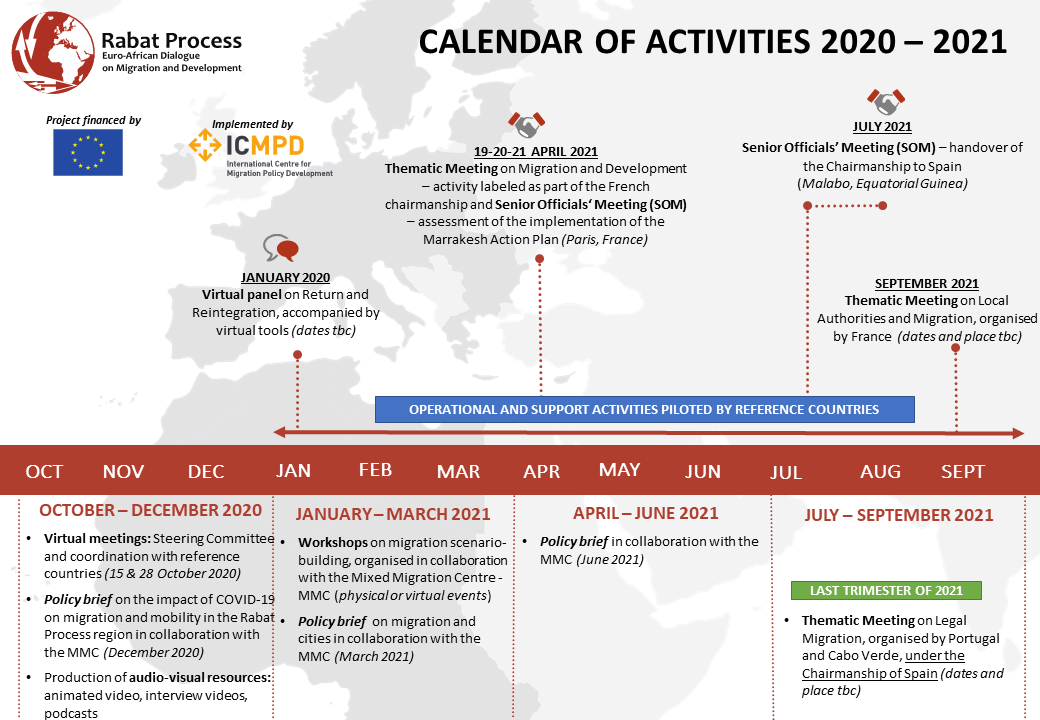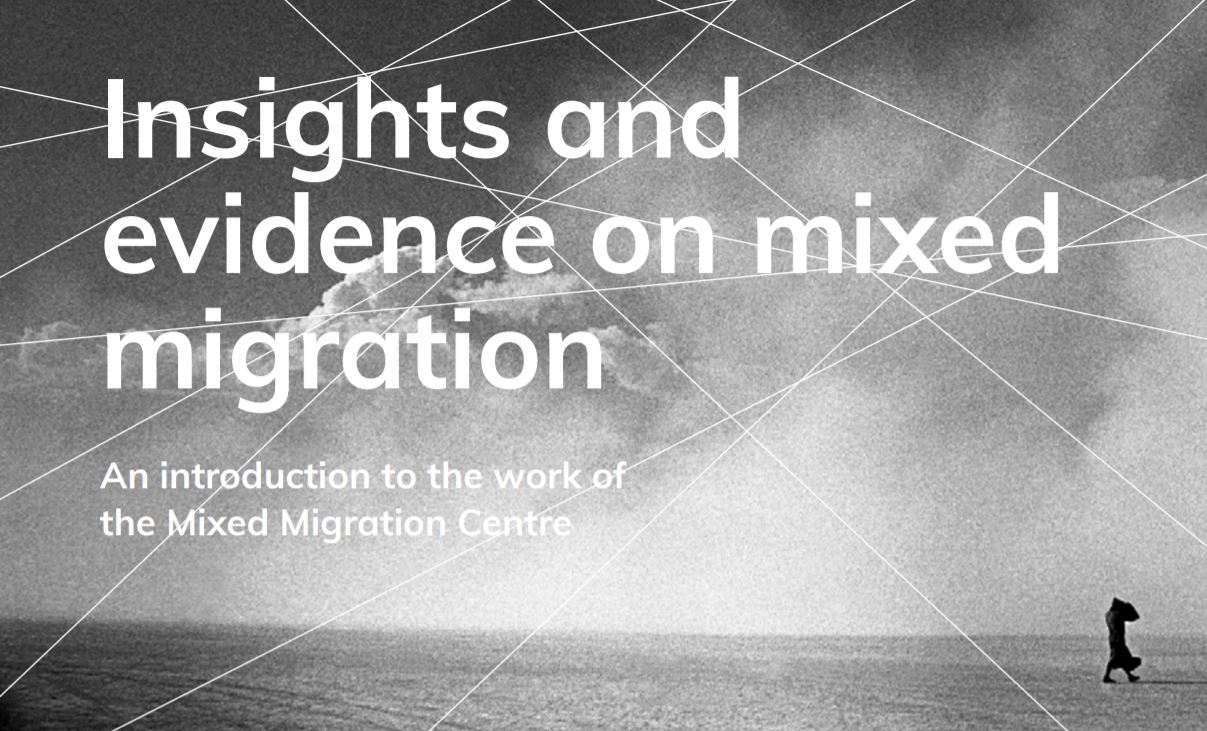Cities are on the frontlines of receiving the majority of those in mixed migration. With an accelerating urbanisation, the future of migration will be increasingly shaped by how cities address migration. As part of a partnership with the Rabat Process Secretariat and the International Centre for Migration Policy Development (ICMPD), the Mixed Migration Centre (MMC) has published case studies on urban mixed migration in Bamako and Tunis.
Access here:
The case studies examine the policy landscape and mixed migration dynamics in these cities by looking at urban opportunities for refugees and migrants, the risks they may face and the impact of Covid-19. They are part of a wider series, also covering Bogotá, Kuala Lumpur, and Nairobi.
To explore these questions, MMC used a mixed methods approach, combining quantitative data from its data collection project, the Mixed Migration Monitoring Mechanism initiative (4Mi), and qualitative data through semi structured interviews with key informants as well as refugees and migrants.
Bamako: Urban mixed migration case study, November 2020
“Bamako is just a steppingstone because I was not able to go where I was trying to go. So, I found myself stuck here. Now, I am doing my best to return to Dakar but with the coronavirus the routes and the places are closed […].” – Liberian woman, age unknown.
Bamako is emphasized first and foremost to be a city of transit, but it is also a destination in its own right and a city of return. A reasonable cost of living is seen as facilitating savings on the part of migrants and refugees. Key informants and migrant respondents tend to emphasize socioeconomic risks faced by refugees and migrants over risks associated with violence and aggression. Migrant respondents seemingly found assistance to be fairly readily available in the city. Regarding the impact of the COVID-19 pandemic, 4Mi data suggests that loss of income is concentrated among female refugees and migrants; for the data collected in Bamako in July 2020, all respondents who reported a loss of income were women.
Tunis: Urban mixed migration case study, November 2020
“Coming to Tunis was not really a deliberate choice. It was a choice because the person I knew had told me about what Tunis was. But he lied a bit on the salary and on the job […].” - Ivorian woman, age unknown
For individuals from a number of Central and West African countries, Tunisia has a visa-free entry policy, which grants tourist visas for 90 days. However, for those who overstay or who have an irregular status, the government applies a fine. Risks are localised, and two neighbourhoods are identified as particularly unsafe, with a particular multitude of hazards and protection abuses reported there. Gender, country of origin and other social factors were key in determining vulnerability. In addition, a majority of refugees and migrants in Greater Tunis lost their main source of income during the COVID-19 lockdown. This led many to rely on negative coping mechanisms and acted a threat multiplier on pre-existing protection vulnerabilities for many.
Partners involved in the studies
These reports were commissioned and financed by the French Ministry of Europe and Foreign Affairs as part of a partnership with the International Centre for Policy Development (ICMPD). They are a “label” product of the Rabat Process (intergovernmental dialogue on migration and development) developed in collaboration with the MMC. The MMC was responsible for data collection and wrote this report with the support of the ICMPD. The British Foreign, Commonwealth and Development Office (FCDO) and the United Nation High Commissioner for Refugees (UNHCR) supported the collection of a part of the data this study relies on.
Download:
Case study: "Mixed migration in urban settings. Exploring risks, opportunities and the impact of COVID-19 on refugees and migrants in Greater Tunis and Bamako"






